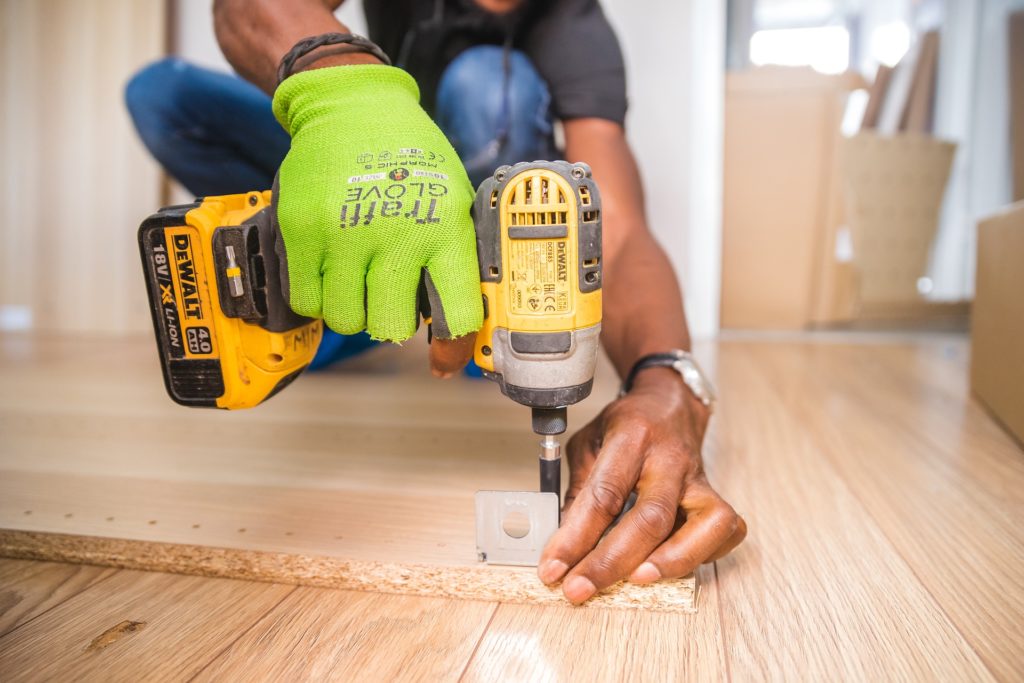It can be challenging to understand what a general contractor can do in Washington state — partially because the definitions of each type of contractor can be difficult to interpret. In this blog post, the team at Northwest Lien expands on the definition of a general contractor in Washington state, reviewing the legal differences between a general contractor vs. specialty contractor vs. handyman and licensing requirements for all three.
Full disclosure: we’re not lawyers. But we work with attorneys and contractors often enough to know a thing or two. If you’re in the process of becoming a licensed contractor in Washington state, you can trust the regional lien experts at Northwest Lien to provide helpful information, friendly customer service, and, of course, comprehensive management of all your Washington mechanics’ liens and notices. Let’s dive in!
In Washington state, a general contractor is defined as the contractor who oversees a construction project from start to finish, acting as the primary point of contact for the property owner throughout the process. General contractors are often referred to as the “prime contractor” on projects in Washington and must be licensed as such to avoid risking fines (and reserve the right to lien in the event of non-payment).
Washington state general contractors can bid, perform, and advertise most types of construction work, including the construction, demolition, repair, and remodeling of any real property. In addition, state law permits general contractors to hire licensed subcontractors to perform specialty work on jobs. Both types of contractors face substantial fines if they do not receive the proper type of contractor’s license before beginning work.

It’s important to note there are two types of contractor classifications in Washington state: general contractors and specialty contractors. In contrast to GCs, specialty contractors are those whose complete specific duties on a construction site that require special licensing, often as subcontractors on the project. Contractors who work with asbestos and lead, painting and wallpaper, and landscaping are just three common examples; handymen are also considered specialty contractors.
When it comes to lien law, general contractors must follow different deadlines and notice requirements than specialty/subcontractors to maintain their right to lien. More specifically, general contractors in Washington state must submit a signed Model Disclosure Statement, also known as a Washington Notice to Owner, before work commences; this differs from the requirements for specialty contractors on the job. If you have other questions about liens and notices for your unique project and role, feel free to drop our team a line by submitting the contact form below or calling (425) 201-5120.
First, something specialty contractors can’t do: state law does not allow specialty contractors to hire other subcontractors. What specialty contractors can do really depends on the specialty; according to the Washington state legislature, 63 types of construction work require contractors to apply for a specialty contractor license. A few common examples include plumbing, drywall, and appliances.
There are also six types of specialty contractor work that require special education, examination, and licensing in addition to the specialty contractor’s license. These include:
1. Asbestos and lead: This type of specialty contractor cleans, repairs, and handles hard block or paper insulation from fixtures — such as heating ducts, shingles or other siding material, attic insulation materials, or cement pipes — containing lead products or exterior asbestos.
2. Electrical: A contractor with an electrical specialty license installs, maintains, repairs, and removes electric wiring in a home or business. Electrical contractors must follow extensive state regulations compared to contractors in other types of specialties.
3. Elevators: Contractors with an elevator specialty license install, repair, relocate, maintain, alter, and demolish elevators at a new or existing construction site. Their work requires them to handle all associated equipment safely to ensure efficient operation or installation of elevators operated manually, hydraulically, or with electricity. Sometimes, contractors with an elevator specialty license may also need an electrical license.
As we mentioned before, handymen are also considered specialty contractors in Washington state. A handyman can contribute to a project but cannot legally take on as much responsibility as general contractors or even other specialty contractors in Washington state.
Washington state defines a handyman as “an individual who does all work personally without employees or other specialty contractors.” In other words, the state considers handymen to be specialty contractors who can perform minor work valued at under $2,000.
Though there is not a specific handyman license in Washington, handymen in the state must be registered as specialty contractors to perform work without risking fines. They must also register their business with the state and obtain a bond and insurance. No formal education is required to become a handyman, but, as with most things, it’s typically a good idea to enroll in training courses to advance your skills and gain an advantage in industry.

The primary difference between general contractor vs. handyman is, put simply, general contractors become involved in larger and more complex projects. Handymen must work as the sole employee, while a general contractor in Washington state can hire specialists to assist with the work.
The requirements to become either a specialty contractor (handyman) or a general contractor, however, are generally the same: you must obtain the appropriate contractor’s license, register as a business with the state, and secure a surety bond and insurance. Handyman vs. general contractor — the choice is ultimately dependent on the work you’d like to be involved in!
Typically, as expected, contractors are paid according to the contract they signed to provide work — either with the general contractor on the job, or directly with the property owner. Unfortunately, that’s not always the case; sometimes, there are miscommunications or mismatched expectations with the property owner that ultimately result in delayed (or withheld) payments. In other words, sometimes people who hire contractors refuse to pay them after work is done. Not ideal.
The good news? Licensed general contractors and specialty contractors have the right to file a mechanic’s lien in Washington against a construction project if they don’t receive payment according to contract. Though the notice requirements and deadlines are different for each type of contractor, the deadline for filing a lien for both roles is the same in Washington: you must file 90 days from the date of the last delivery of materials or labor.
Contracting laws in Washington state also protect materials suppliers. Just to throw another classification definition into the mix, suppliers are those who contributed to a construction project by delivering necessary materials but who did not complete actual work. General contractors may contract with a supplier for this purpose, and the state considers suppliers to have an indirect contract with the property owner. The same Washington Notice of Intent to Lien requirements that apply to specialty contractors also apply to suppliers.
Regardless of a person’s classification on a construction project, timely filing is essential to protect their financial interests. And that’s where we can help; Northwest Lien has filed thousands of notices and liens on behalf of Washington contractors.
Construction is hard physical labor (and, oftentimes, chaotic project management) that leaves little time for dealing with paperwork requirements. Especially for general contractors, specialty contractors, laborers, and suppliers who only work on a few projects a year, it can be tough to remember all of the necessary deadlines and legal requirements effectively.
At Northwest Lien, preparing and filing construction liens is all we do. We file all liens electronically, offer a short turnaround time, and provide contractors with proof of the transaction. If you’re a contractor in Washington state, contact us by submitting the form below or create a free account today to begin sending notices and liens more efficiently. We’re looking forward to hearing from you!

